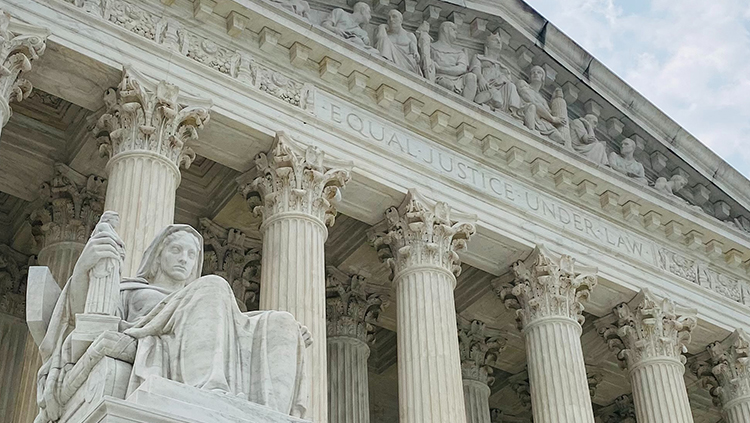
BIPOC scientists face unique challenges in their careers, from undervaluing of their work to microaggressions and tokenism at their institutions. In this interview, Pablo Wickham, Marguerite Matthews, and Nii Addy share their advice for Black students and researchers navigating these and other challenges. This interview is a follow-up to SfN's recent webinar, Black Lives Matter and Neuroscience: Why This Moment Matters. Hear more from Wickham, Matthews, and Addy, by watching the webinar on Neuronline or reading their recent live chat where they answer member questions directly.
How do we, as Black students, maintain our resilience amongst the distressing events in our community and being active in social justice initiatives?
Take pride in how far we have come as a people and recognize that many of the privileges we have today were not available to our ancestors, but someone fought for it. Recognize that that person or group of people are no different from you, and that you are capable of creating change. It is an uphill climb, but well worth it to continue the work of tremendous activists and visionaries and join their ranks in paving a brighter future for generations of youth who will come after us.
Many times, we become bogged down because we cannot see the end goal. For that reason, we should celebrate every small victory. Take it easy on yourself and know that you don't have to do everything, and you don't have to do it alone. Just do your part and recruit others to join the cause.
At the same time, realize that social justice work isn't always sustainable. Practice self-care and prioritize your mental, physical, and emotional well-being — if you aren't doing well, you cannot do well. Find what makes you happy outside of social justice and incorporate that into your daily schedule so you have down time to relax and unwind. – Pablo Wickham
How do you navigate working for an institution at which you do not feel valued?
Surround yourself with people who can recognize and appreciate your worth and the value you bring. If you cannot find that then I guarantee you it is better to be alone. If you are often alone, learn to appreciate yourself and stop looking for validation from others. Once you know your worth it's harder for anyone to depreciate you. In fact, it becomes more apparent to others just how highly valuable you are.
Do not stop challenging yourself! Keep setting personal goals and continue improving your brand. If your contributions to the community still go unnoticed and unappreciated, then don't be afraid to walk away. Life is too short and you are too valuable to be taken for granted. They'll miss you when you're gone, but that's their loss; keep forging ahead. If you are continually denied a seat at the table regardless of where you go, then make your own table. Soon they'll be asking you for a seat – Pablo Wickham
What would you say to someone who may have felt unheard and dismissed by their institution when they previously tried to initiate a conversation on the unique challenges that BIPOC members face?
If you are comfortable doing so, I encourage you to reach out to others at your institution who you think may share your concerns and desire to affect change, regardless of their position. When there are a collection of voices speaking out, it can be helpful to move these difficult conversations around race and racism forward. It's harder to silence a group. – Marguerite Matthews
How should you deal with microaggressions in the workplace?
First, get into the habit of not seeing them as "micro," as this mindset will often lead us to brush them aside and avoid addressing them. If something someone does bothers you, kindly ask them to stop. My advice is to not ask them in anger, as that might read the wrong way, heighten emotions, and cause them to become defensive. Rather, make your wishes known in a clear and kind manner. And remember — you don't owe anyone an explanation for why you don't like a certain behavior.
If the person continues the problematic behavior even after you’ve discussed it, bring in a third party, preferably an unbiased superior to weigh in on the situation. If the perpetrator is a supervisor, that can be even more intimidating. I still suggest speaking with them and possibly bringing a friend or other third party. If you don’t feel comfortable talking directly to the aggressor, consider asking a mutual friend to share the message with them. – Pablo Wickham
How can we speak up against tokenism? Where can we go to report and acknowledge systemic racism within our communities?
This is a challenging question, especially when those who want to speak up are in vulnerable positions. The key here is to have support structures in place in your program or institution where there are specific faculty, administrators, ombudspersons, or others who can serve as advocates and allies — even anonymously if needed. These individuals should be readily available to listen when tokenism and racist incidents occur. Critically, they also need to speak up on your behalf and call for accountability and consequences for inappropriate actions. However, even having allies speaking on your behalf can be difficult, or feel like unnecessary exposure, if you're "the only one" (i.e. the only BIPOC student, staff or faculty member) in your group, program, or department. In these instances, it can be helpful to seek the support of other allies or BIPOC mentors outside of your department or institution. These additional allies may provide insight and guidance for specific challenges you may be facing within your institutional community. -Nii Addy
Speakers








